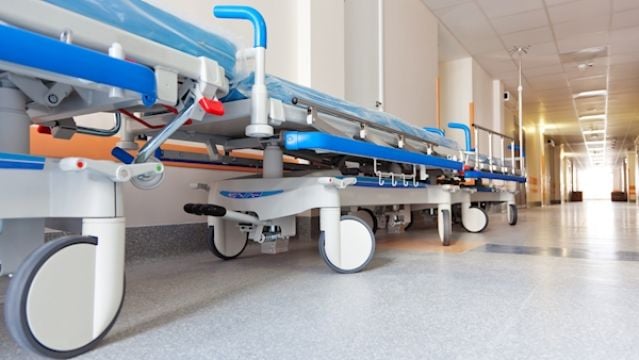A total of 555 admitted patients are waiting for beds this morning, according to Monday's Irish Nurses and Midwives Organisation (INMO) Trolley Watch.
General Secretary Phil Ní Sheaghdha is warning of a 'catastrophic winter' for Irish hospitals as overcrowding figures continue to rise.
There are currently 482 patients are waiting in emergency departments, while 73 are in wards elsewhere in the hospital.
Cork University hospital and University Hospital Limerick were the worst affected both with 74 people on trolleys.
The new figures come as the INMO recorded 10,515 patients on trolleys for the month of September.
It is the second-worst September for overcrowding in Irish hospitals when 10,641 patients were without a bed in 2019.
The top 5 most overcrowded hospitals in September 2022 were:
- University Hospital Limerick (1382 patients)
- Cork University Hospital (1260 patients)
- University Hospital Galway (1032 patients)
- Sligo University Hospital (790 patients)
- Letterkenny University Hospital (666 patients)
Speaking about the figures, Ní Sheaghdha said:“It is clear from this month’s overcrowding figures that we are on a path to a catastrophic winter in our hospitals.
"It is unsafe for nurses and the patients they care for. Besides a leaked draft winter plan, we have no clear vision from healthcare leaders as to what the solution for this winter is.
“The ongoing problems with overcrowding are leaving nurses completely and utterly demoralised. We have a severe recruitment and retention problem within the health service
"This week alone in a large teaching hospital in Dublin, over a dozen nurses working in a busy Emergency Department handed in their notice."
She said their members are now voting with their feet and saying that they will not stand for "another winter where they are demoralised, burnt out and abused in their workplace because of the excessive workloads."
The INMO recently visited University Hospital Limerick and saw first hand the conditions our members are working in.
She said "There is no dignity for patients who end up in UHL. Their care is no doubt being compromised because of the conditions."







